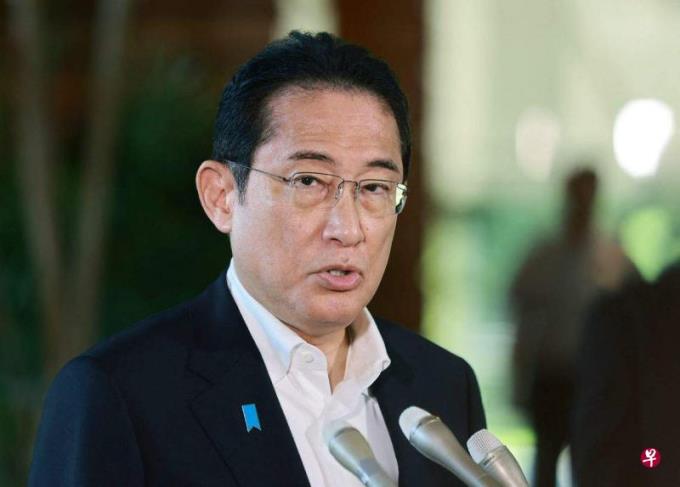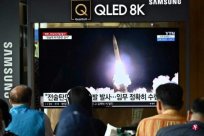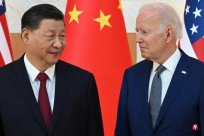
(Tokyo Composite Electric) Japan may increase national defense expenditure by 13%in the fiscal year budget of 2024, making national defense expenditure hit a new high.
The Ministry of National Defense on Thursday (August 31) confirmed that it asked the government to appropriation in the financial year in April next year to 7.7 trillion yen (about S $ 71 billion).
This is one of the steps in Japan to make the total defense expenditure of 43 trillion yen within five years.Japan's Prime Minister Kishita Nakano promised last year that by 2027, national defense spending accounted for 2%of the GDP (GDP).This may eventually make Japan's military expenditure eventually surpassing members of the Seventh Kingdom Group (G7) except the United States.
Japan ’s reasons for increasing military expenditures include Russia’ s full invasion of Ukraine, North Korea ’s development of new missiles, and China’ s increasingly strong. The increased funds will be used to include reserves to combat missiles such as Russia, China and North Korea.The number of nuclear weapons in these three countries accounts for about half of the world, and the size of the armed forces is also huge.
If the Japanese Ministry of Defense's budget request is approved, the appropriation will increase by about 1 trillion yen over the annual annual financial year, which will increase by about 1 trillion yen for the two consecutive years of Japanese defense budget, which is unprecedented.According to data from the Institute of International Peace of Stockholm, the defense budget of 7.7 trillion yen is comparable to France and Germany.
The key projects in the Budget Plan of the Ministry of National Defense include 755 billion yen to improve counter -terrorism capabilities.This contains the development of missiles, which can be launched from Japan and crack down on the goals of hundreds of kilometers away.
Japan also strongly invests in expanding long -range strike capabilities.The Japanese side had previously announced that it had spent more than 200 billion yen to buy about 400 Tomahawk cruise missiles from the US Thor company; it plans to upgrade the 12 anti -ship missiles developed by Mitsubishi Heavy Industries in Japan, so that the range can reach North Korea and nearby China nearby.And the Russian Navy Base.This type of missile currently has a range of about 200 kilometers.
According to the budget plan, Japan is preparing to invest 75 billion yen to jointly develop interception missiles with the United States to fight against the hypersonic warhead; invest 64 billion yen to jointly develop the next generation of fighters with the United Kingdom and Italy.
Japan intends to allocate 600 billion yen to strengthen logistics
Japan also plans to allocate 600 billion yen to strengthen logistics ability to deploy weapons and resources to the Southwest Island Chain in the emergency.The budget also includes the purchase of three new landing ships, 17 transport helicopters, and forming a new professional transport team to improve the deployment of maneuverability.
Japan has been pursuing peacetime policies in accordance with the Constitution after World War II, but in recent years, it has changed the policy to continue to increase military expenses on the grounds of challenges and threats in China, North Korea and Russia.Japan's aggression before and during World War II is still one of the reasons for the tight relations between Japan and some Asian countries.Although Japan guarantees that it will not use the growing military power to threaten other countries, it is difficult to eliminate questioning.
In Japan, public opinion surveys have shown that the government is concerned that the government will increase taxes in response to the continuous expanding military expenses.Although the taxes are higher than expected factors, Japan has more budget surplus to use, but officially acknowledged that in the long run, tax increases are unavoidable.
The Japanese Parliament is currently discussing whether the government should sell the government's shares in some Japan's largest companies such as Japanese telegraph and telephone companies, as one of the options for funding for national defense expenses.




